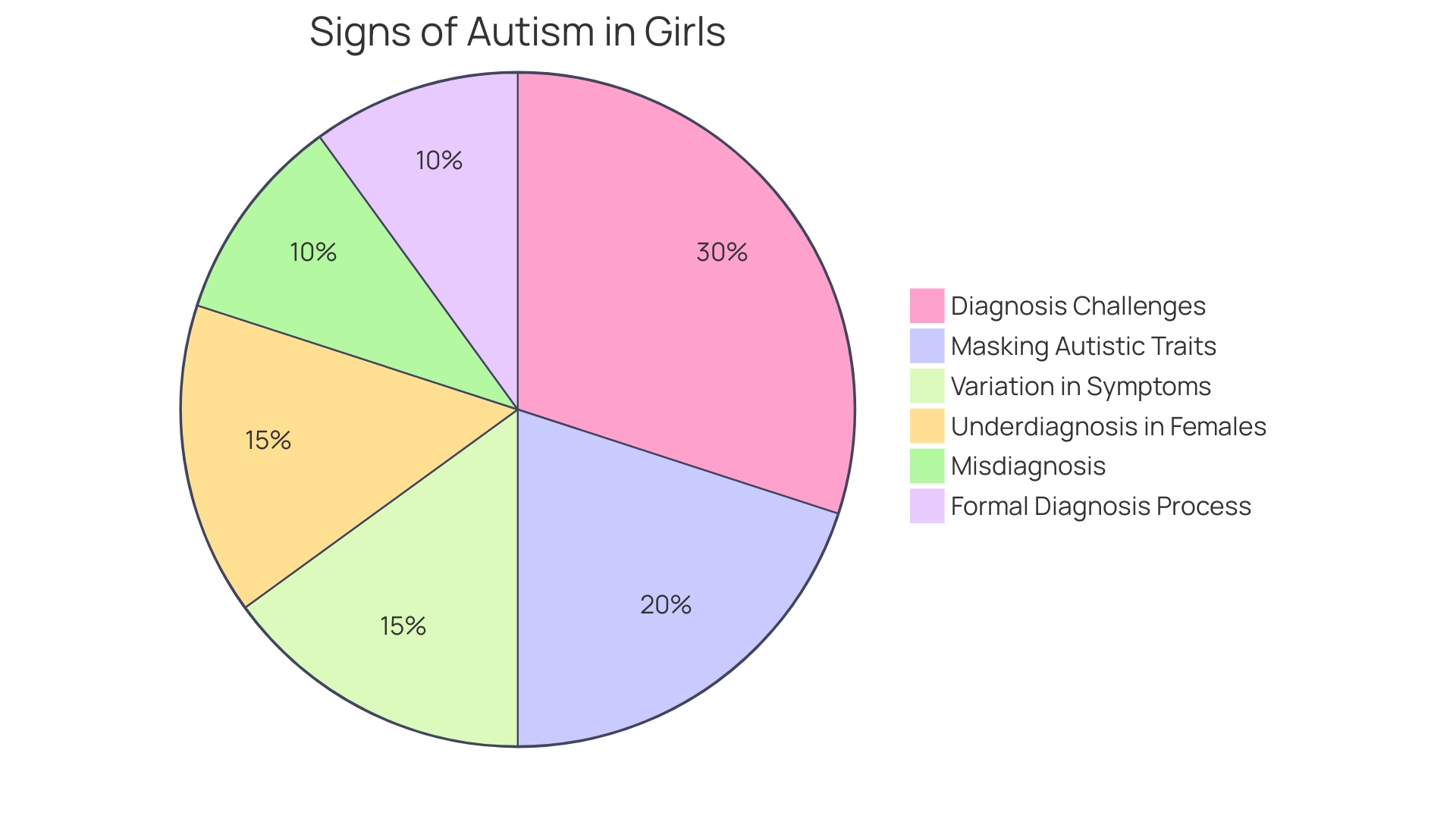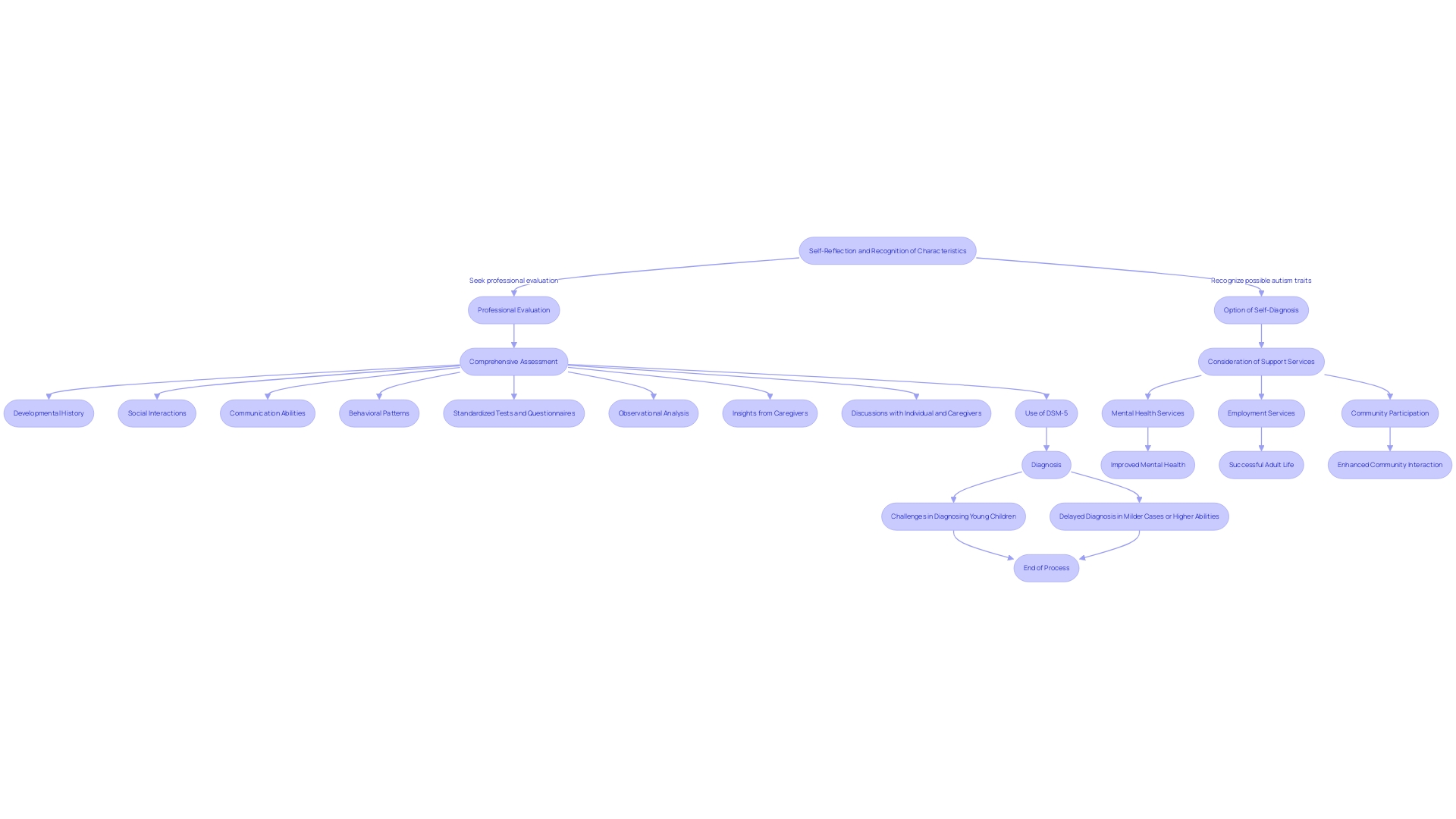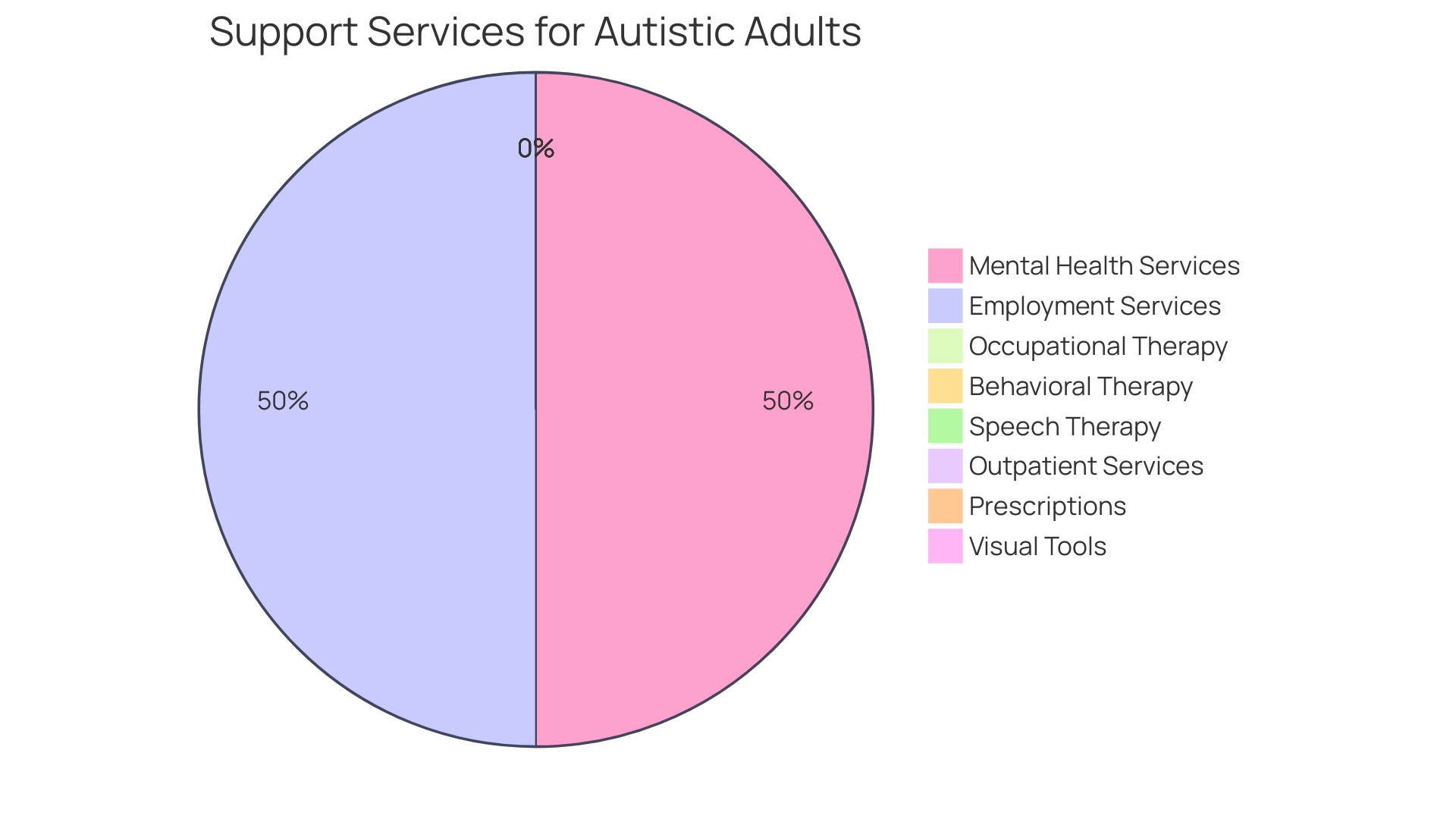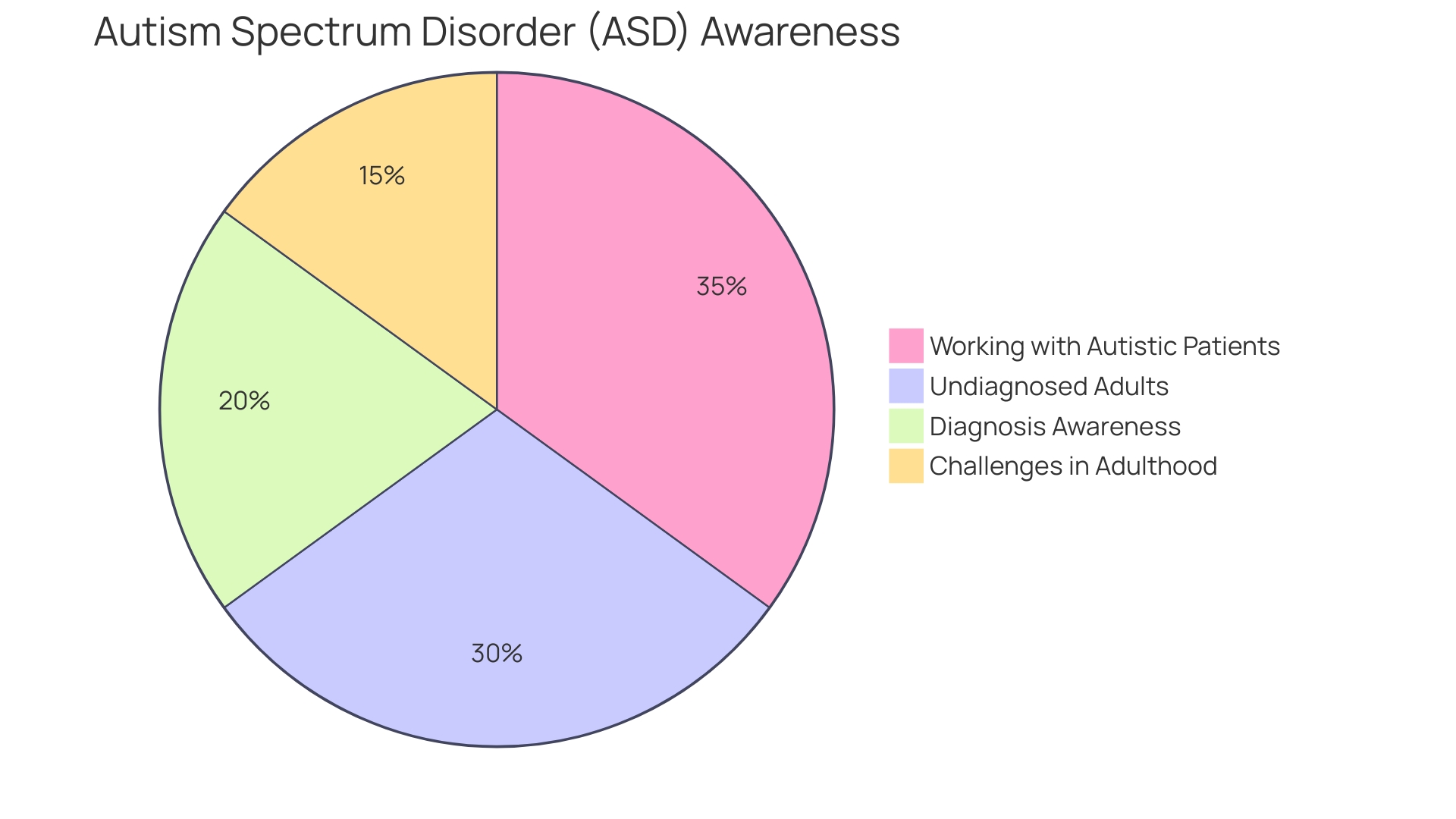Introduction
Autism spectrum disorder (ASD) is a complex neurodevelopmental condition that affects individuals in unique and diverse ways. From challenges in social communication to sensory sensitivities and repetitive behaviors, the manifestations of ASD are varied. Recent research conducted at the University of Geneva has shed light on the distinctive patterns of attention in autistic children, emphasizing the need for personalized early intervention.
Understanding the nuances of ASD is crucial for providing the right support and accommodations, as well as ensuring the well-being of individuals on the spectrum. In this article, we will explore the common signs and symptoms of autism, the diagnostic process, the different types of ASD, and the importance of professional diagnosis. We will also delve into how to identify potential autism traits in oneself, what to expect during a diagnostic evaluation, and the support and resources available after diagnosis.
Finally, we will discuss tips and strategies for living with autism, emphasizing the importance of self-care, communication skills, and seeking support. By embracing a compassionate and informed approach, we can empower individuals with ASD and help them navigate the challenges they may face.
Understanding Autism
Autism spectrum disorder (ASD) is a complex neurodevelopmental condition that manifests in a myriad of ways. Those with ASD often experience challenges in social communication, which can range from difficulties in understanding and processing social cues to challenges with verbal and non-verbal communication. For many, repetitive behaviors and a strong preference for routine are also characteristic.
A unique developmental trajectory of social attention is one of the hallmarks of autism, as discovered by research conducted at the University of Geneva. This study found that, unlike their typically developing peers, autistic children develop their own distinct patterns of attention, emphasizing the need for early intervention tailored to each individual's specific preferences and needs.
In addition to social challenges, sensory sensitivities, such as auditory hypersensitivity, are common among individuals with ASD. Such sensitivities can make everyday environments like shopping malls or public transport overwhelming due to the excess noise and sensory input. Understanding these nuances is crucial for providing the right support and accommodations to enhance quality of life for those on the spectrum.
While some individuals with autism live independently, it's reported that only 10-20 percent of those diagnosed before the age of 5 achieve this level of independence as adults. This underscores the importance of early diagnosis and intervention, which can significantly improve outcomes. Research continues to explore the interplay between genetic and environmental factors in the development of ASD, aiming to map out the early signs and progression of the disorder.
It's imperative to recognize that autism is a spectrum, affecting each person differently. Some may lead productive lives with minimal intervention, while others may require more comprehensive support. In Australia, for example, the National Disability Insurance Scheme (NDIS) provides personalized plans to support individuals with autism, emphasizing the importance of early intervention programs that focus on communication, social skills, and behavior management.
With ongoing advancements in autism research, the approach to studying and supporting individuals with ASD is continually evolving. Clinicians now rely on more sophisticated, evidence-based methods such as randomized controlled trials to determine the efficacy of interventions. This shift reflects a broader commitment to understanding autism's complexities and ensuring those with ASD receive the most effective support possible.
By embracing these insights and adopting a compassionate, informed approach, we can better support the diverse needs of individuals with ASD throughout their lives.

Common Signs and Symptoms of Autism
Understanding autism spectrum disorder (ASD) is essential for recognizing its presence in individuals, particularly in adult women where it can often be overlooked. ASD is not a condition to be cured; it is a part of who a person is, shaping their perception and interaction with the world. It varies greatly, presenting a spectrum of experiences from mild to severe, impacting communication, socialization, and interaction.
Adult women with ASD may experience social communication challenges, including difficulty understanding non-verbal cues and maintaining conversations. They might also have repetitive behaviors or intense interests that seem unusual to others. Sensory sensitivities, such as an aversion to certain sounds, textures, or lights, are also common, as well as a preference for predictable routines and difficulty with change.
While some may view these characteristics as hindrances, it is important to recognize the strengths that come with autism. Many autistic individuals display remarkable attention to detail, excel at task focus, and possess strong problem-solving and pattern recognition skills. These talents make fields like technology particularly suitable for those with ASD, as they align well with the demands of the industry.
Research emphasizes the importance of early and accurate diagnosis of ASD, which can lead to more effective interventions. Current trends in research are moving towards more reliable study methods, such as randomized controlled trials, to better support individuals with ASD and their caregivers. This shift in research methodology is crucial, as it helps to develop interventions that can significantly improve the quality of life for those on the autism spectrum.
It's worth noting the prevalence of misleading information about ASD, particularly on social media platforms like TikTok, where a significant portion of content is either misleading or false. Therefore, learning from reputable sources is vital for understanding the true nature of autism and the diversity of its manifestations.

Diagnostic Process for Autism
As we deepen our understanding of autism spectrum disorder (ASD), it's important to consider the diverse ways it presents, particularly in adults who may have gone undiagnosed. Traditional diagnostic procedures for ASD typically include a combination of interviews, questionnaires, and behavioral observations. These assessments are geared towards understanding an individual's communication skills, social interactions, and behavior patterns from an early age.
However, the necessity of a formal diagnosis is a subject of debate within the autistic and neurodivergent community. Many see self-diagnosis as valid, due to the complexities and potential shortcomings of medical assessments, which can lead to inconclusive results for many adults. This is particularly significant for those who do not rely on an official diagnosis for support or accommodations.
For some, like Heather Florio, who was diagnosed at 41, obtaining a formal diagnosis can be transformative, allowing for self-acceptance and understanding. Meanwhile, initiatives like the Adult Autism Health Resources project at Harvard Medical School, led by Christopher McDougle, MD, aim to improve healthcare for autistic adults, highlighting the need for quality medical care throughout their lifespan. The project underscores the large number of undiagnosed autistic adults and the post-high school services gap.
Moreover, organizations like The Autism Community in Action (TACA) and NeuroQure are working to provide early and accurate diagnosis and support for families, advocating for timely intervention. This is crucial as early behavioral therapies have been shown to significantly improve outcomes. With autism affecting as many as 1 in 36 individuals, according to the CDC, early and accurate diagnosis becomes even more critical.
While self-diagnosis is respected within the community, for those seeking a formal diagnosis, it's essential to have access to knowledgeable professionals who can conduct a thorough evaluation, considering the unique presentation of ASD in adults.
Types of Autism Spectrum Disorder
Autism Spectrum Disorder (ASD) encompasses a diverse array of presentations and abilities, which can manifest uniquely across different individuals. While the term 'high functioning autism' is not officially recognized medically, it is often used to describe those with ASD who possess higher intellectual capabilities and milder symptoms. However, despite these distinctions, all individuals with ASD may experience significant challenges in social communication, sensory processing, and may engage in repetitive behaviors.
ASD is not a mental illness to be cured, rather it is a neurodevelopmental condition with a spectrum of severity, legally acknowledged as a disability. The characterization of ASD by the National Autistic Society includes social interaction difficulties, over- or under-sensitivity to sensory input, and intensely focused interests. It's critical to note that intelligence is not necessarily impaired by autism; in fact, only about half of those with ASD also have an intellectual disability.
Regarding the diagnosis, ASD is defined in the DSM-5 by persistent challenges in social communication and interaction across various contexts, as well as restricted and repetitive patterns of behavior. Early diagnosis and intervention are crucial, as they provide access to resources that support individuals to live fulfilling lives. It's estimated that as many as 1 in 36 individuals may be on the autism spectrum.
The importance of understanding ASD extends beyond medical professionals to those in the individual's immediate social circle, including friends, teachers, and coworkers. This understanding can play a significant role in providing the appropriate support to someone with ASD. In Australia, for instance, the diagnosis involves a comprehensive evaluation by a multidisciplinary team and early intervention is facilitated by programs such as the National Disability Insurance Scheme (NDIS), which emphasizes personalized support.
Educational inclusion and tailored interventions are pivotal in nurturing the potential of every individual with autism, underscoring the fact that people with ASD can lead productive and meaningful lives, contributing uniquely to society.
How to Identify Potential Autism Traits in Yourself
Understanding the signs of autism in adult women requires a nuanced approach, as every individual's experience with the spectrum varies. Autism, a spectrum condition affecting people differently and to varying degrees, is estimated to occur in as many as 1 in 36 individuals according to the CDC. For those suspecting they may be on the spectrum, common indicators include challenges in social interactions, interpreting social cues, and communication.
Autistic women may also have deep, focused interests, heightened or diminished sensitivity to sensory input, and a strong preference for routines and predictability.
The diagnostic process for autism does not necessarily require formal testing. The autistic and neurodivergent community widely accepts self-diagnosis, recognizing that medical testing can be flawed and inconclusive. This acknowledgment allows individuals to identify as autistic without the barriers of time, energy, and expense that official diagnosis might entail.
Importantly, recent research has highlighted that the employment rate among autistic individuals is strikingly low, with only around 3 in 10 working-age disabled autistic people employed, as opposed to 5 in 10 of all disabled people. Moreover, autistic people often face a significant pay gap and are the lowest paid among disability groups. These statistics underscore the need for increased awareness and support, as well as initiatives to improve employment opportunities for autistic adults.
Misinformation about autism is rampant, particularly on social media platforms like TikTok, where research has shown that a significant portion of content is misleading or false. It’s crucial to seek out accurate information and resources to better understand autism in adults. The power of correct knowledge can not only lead to self-recognition and improved self-advocacy but also to broader societal changes, such as those aimed at enhancing employment prospects for autistic individuals.

The Importance of Professional Diagnosis
Understanding oneself is a journey that may lead some individuals to explore the possibility of being on the autism spectrum. While the process of self-identification is recognized and respected within the autistic community, the decision to pursue a professional evaluation is deeply personal. For some, an official diagnosis may not change their lives significantly.
However, for others, a formal diagnosis carries substantial benefits. It can help in articulating their experiences without skepticism, particularly from those who may question a self-diagnosis. Additionally, a professional diagnosis can provide a sense of validation, and it may be essential for those who seek specific accommodations or support services.
In the context of driving guidelines and professional practices, a diagnosis could influence how individuals with autism are supported. For instance, health professionals rely on national standards, such as those developed by Austroads and the National Transport Commission, which now include considerations for individuals on the spectrum. This points to a growing recognition of the need for nuanced understanding and tailored support.
The importance of a timely and accurate diagnosis is underscored by organizations like The Autism Community in Action (TACA), which emphasizes that early intervention can lead to better outcomes. This is echoed by initiatives that aim to diagnose autism at the earliest age possible, highlighting the crucial role of a professional diagnosis in accessing effective treatments and interventions.
Moreover, the development of one's identity, whether personal or social, is a critical aspect of being autistic. The process of defining oneself and making life choices aligned with one's autistic identity is a significant journey of self-discovery and acceptance. It is here that a professional diagnosis can act as a cornerstone for some, assisting in defining their place within the community and society at large.
Ultimately, the decision to seek a professional diagnosis is an individual's choice, reflecting their needs for personal validation, community acceptance, and access to resources designed to support their well-being and success.
What to Expect During a Diagnostic Evaluation
The journey to an autism diagnosis for adults often starts with self-reflection and recognition of characteristics that align with autism spectrum disorder (ASD). It is essential to understand that one does not need a formal test to identify as autistic. Self-diagnosis is widely accepted within the autistic and neurodivergent community due to the complexities involved in the medical testing model for autism.
However, for those who choose to seek a professional evaluation, it begins with a comprehensive assessment that scrutinizes developmental history, social interactions, communication abilities, and behavioral patterns.
The diagnostic process is multifaceted, incorporating standardized tests, detailed questionnaires, and observational analysis, alongside discussions with both the individual and their caregivers. The American Psychiatric Association's Diagnostic and Statistical Manual, Fifth Edition (DSM-5), provides a structured framework for clinicians. Still, it's crucial to note that no single diagnostic tool should be used in isolation.
Instead, a combination of caregivers' insights and professional observations offers the most reliable information for a diagnosis.
Studies have indicated some challenges in diagnosing young children, with a significant proportion of evaluations associated with uncertainty. Particularly, children with milder autism-related behaviors or higher cognitive and language abilities are more likely to receive a delayed diagnosis. This uncertainty can lead to delays in accessing vital early behavioral therapies that have been shown to improve language, cognitive, social, and adaptive skills.
For adults, the stakes are no less significant. Many may have lived their entire lives without recognizing signs of ASD or may have been misdiagnosed. The key characteristics of autism, including difficulties with social communication and restricted, repetitive behaviors, manifest in adults just as they do in children.
Awareness and understanding of these signs are the initial steps toward recognizing undiagnosed ASD in adults.
Amidst the sea of information available, it's critical to be cautious, as studies have found that a substantial portion of autism-related content on social media platforms like TikTok is misleading or false. Reliable information and guidance are vital for those navigating the possibility of an autism diagnosis at any age.
Ultimately, an accurate diagnosis is the gateway to targeted support and resources, enabling individuals to live fully and authentically. Organizations like The Autism Community in Action (TACA) and projects spearheaded by Harvard's Adult Autism Health Resources initiative are working to improve the diagnostic process and ensure that autistic adults receive the quality medical care they deserve, just as neurotypical individuals do.

Support and Resources After Diagnosis
Embarking on the autism journey post-diagnosis unveils a spectrum of strengths and opportunities for personal growth. While an official diagnosis is not a prerequisite for embracing one's autistic identity, many find solace and empowerment in understanding their unique neurology. For those who seek it, a world of support beckons, with therapy varieties, community groups, and educational tools tailored to autistic adults.
The camaraderie found in shared experiences can be a wellspring of strength and wisdom.
The pursuit of understanding and support is not limited by the traditional medical diagnosis process, which can often yield inconclusive results for adults. Instead, the autistic community welcomes self-identification, recognizing the limitations and challenges inherent in the existing medical framework. This approach aligns with the lived experiences of many and echoes the sentiments of experts advocating for a more inclusive and accessible pathway to support.
Navigating life post-diagnosis, the emphasis on clear communication becomes paramount, especially in the medical field where jargon-laden visit notes can create barriers. The innovation of generative AI in transcribing medical discussions into understandable language for parents exemplifies the kind of progress that aids in demystifying the autistic experience for both individuals and their support networks.
Research shows that autistic individuals often face significant employment challenges, with only around 30% of working-age autistic adults in employment compared to 80% of non-disabled peers. The gap in understanding and support in the workplace is a critical issue that requires immediate and effective solutions. Initiatives to increase awareness, reduce stigma, and harness the unique talents of autistic employees are essential steps toward a more inclusive society.
As the journey unfolds, continuous learning and adaptation to new findings in autism research and therapies are crucial. Validating information with experts and discerning credible sources are key responsibilities for those supporting autistic individuals. The dynamic and ever-evolving landscape of autism calls for an ongoing commitment to education and advocacy, ensuring that every autistic adult can navigate their path with confidence and support.

Living with Autism: Tips and Strategies
Autism presents a spectrum of experiences and challenges unique to each individual. For adult women, understanding and embracing these differences is key to leading a rich, self-directed life. Strategies for managing sensory sensitivities might involve creating environments that reduce sensory overload or utilizing tools that help mitigate discomfort.
Developing communication skills goes beyond verbal exchanges; it encompasses learning to articulate needs and emotions in ways that foster understanding and connection.
Establishing routines provides structure and predictability, which can be comforting for autistic individuals. It's equally important to set realistic goals that align with personal abilities and aspirations, as this fosters a sense of achievement and progress. Self-care is an essential component of living with autism, and it can take many forms, from engaging in activities that bring joy to ensuring adequate rest and nutrition.
Seeking support is not a sign of weakness but a step towards empowerment. Whether it's through professional services, community groups, or supportive relationships, finding a network that understands and accepts the autistic experience can be transformative. Current initiatives are working towards increasing autism awareness, reducing stigma, and promoting inclusivity in the workplace, which is crucial as only around 30% of working-age autistic individuals are employed, compared to 80% of non-disabled people.
Stories like that of Heather Florio, who found self-acceptance after being diagnosed at 41, highlight the importance of recognition and understanding of autism in adults. Harvard's Adult Autism Health Resources initiative further emphasizes the need for tailored medical care and support for the adult autistic community. As we strive towards an inclusive society, it's essential to acknowledge the diverse talents and perspectives that autistic individuals bring to the table.

Conclusion
In conclusion, autism spectrum disorder (ASD) is a complex neurodevelopmental condition that affects individuals in unique ways. Recent research emphasizes the importance of personalized early intervention for individuals with ASD. Recognizing the signs and symptoms of autism is crucial for providing the right support and accommodations.
Understanding autism in adult women is essential, as it can often be overlooked. ASD is not a condition to be cured but a part of who a person is, shaping their perception and interaction with the world. Sensory sensitivities, repetitive behaviors, and intense interests are common characteristics, along with remarkable strengths such as attention to detail and problem-solving skills.
The diagnostic process for ASD involves interviews, questionnaires, and behavioral observations. While self-diagnosis is respected within the autistic community, a formal diagnosis can provide validation and access to specific accommodations and support services. Early diagnosis and intervention significantly improve outcomes and help individuals access necessary support.
ASD encompasses a diverse array of presentations and abilities. Understanding the characteristics of ASD is important for providing appropriate support and fostering inclusivity. Seeking accurate information from reputable sources is crucial, as misinformation about autism is prevalent on social media platforms.
Living with autism requires strategies for managing sensory sensitivities, developing communication skills, establishing routines, setting realistic goals, and practicing self-care. Seeking support from professionals, community groups, and supportive relationships is essential. Embracing the diverse talents and perspectives of autistic individuals contributes to an inclusive society.
By embracing a compassionate and informed approach, we can empower individuals with ASD and help them navigate the challenges they may face. Ongoing advancements in autism research and a commitment to understanding its complexities ensure that individuals with ASD receive the support and resources they need to lead fulfilling lives.




